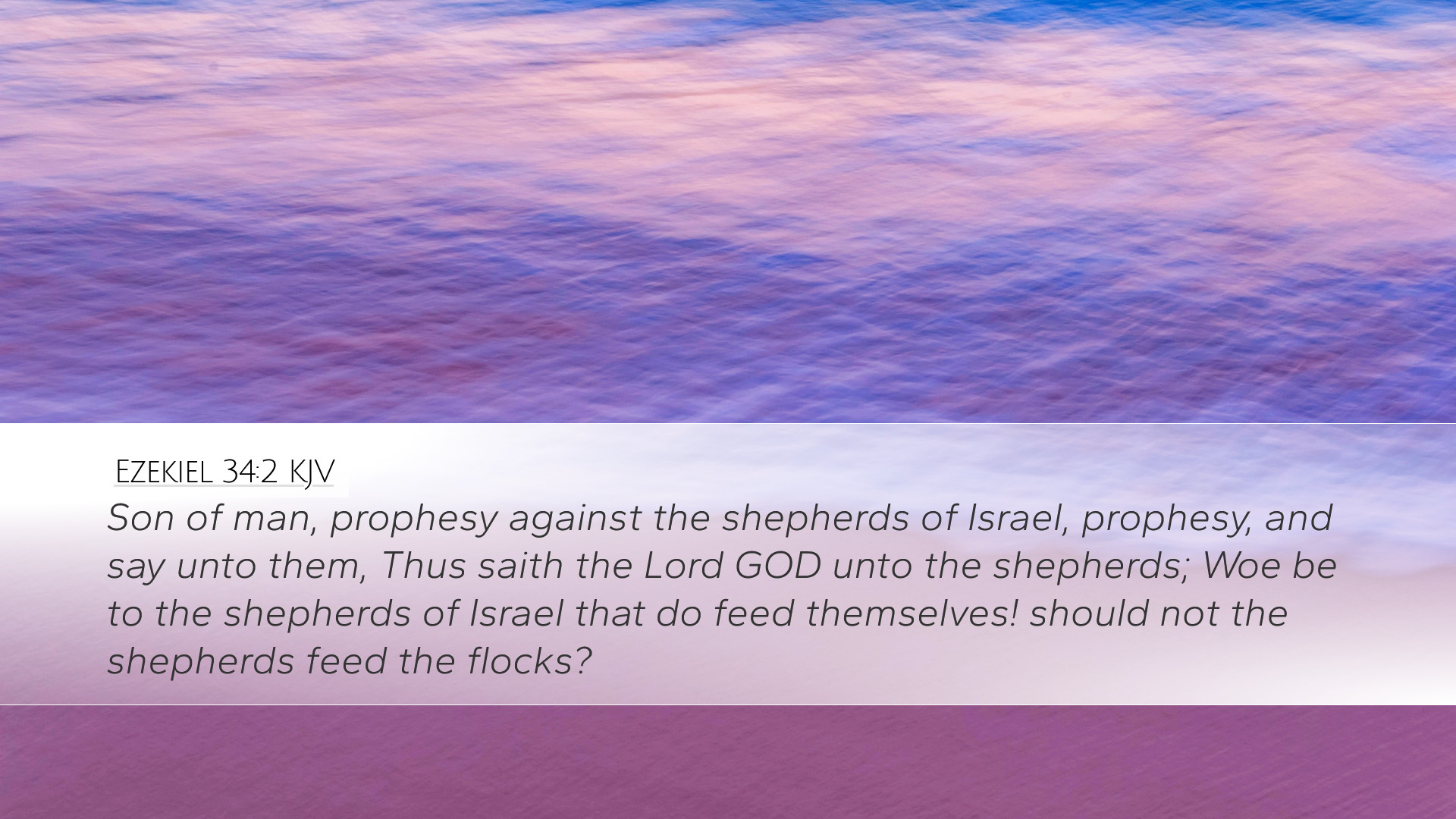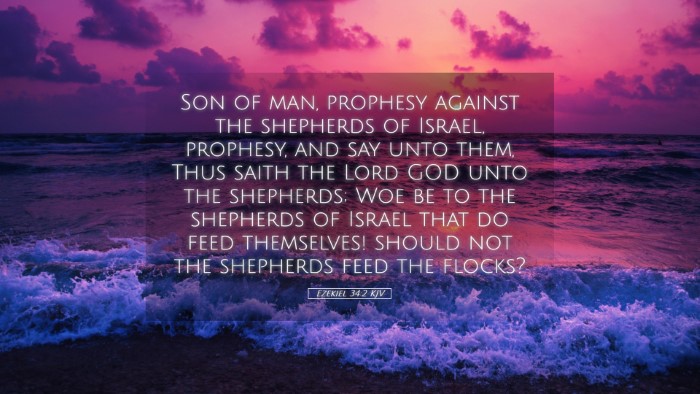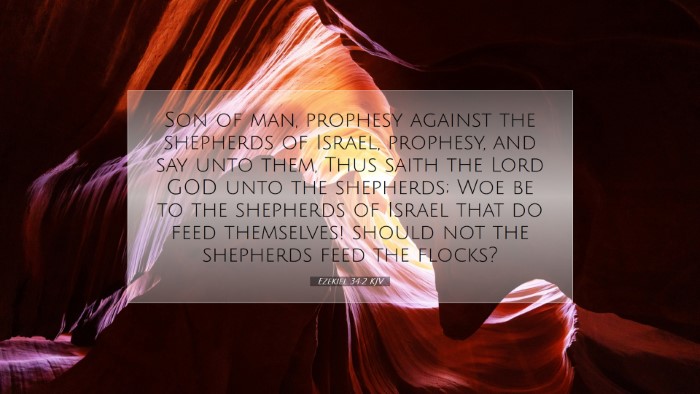Ezekiel 34:2 Commentary
Verse: "Son of man, prophesy against the shepherds of Israel, prophesy, and say unto them, Thus saith the Lord God unto the shepherds; Woe be to the shepherds of Israel that do feed themselves! Should not the shepherds feed the flocks?" (Ezekiel 34:2, KJV)
Introduction
The prophetic ministry of Ezekiel is paramount in addressing the spiritual and moral failings of the leadership in Israel. This particular verse, Ezekiel 34:2, encapsulates a strong rebuke towards the shepherds, or leaders, of Israel. The implications for contemporary pastoral care and leadership within the church are critically significant.
Historical Context
Ezekiel writes during a tumultuous period for Israel. After the Babylonian exile, the Israelite community grappled with the loss of their homeland and the failure of their leaders. The 'shepherds' represents both spiritual and civil leaders who have neglected their responsibilities, leading the people astray.
Commentary Insights
Matthew Henry's Commentary
Matthew Henry highlights that the shepherds referred to in this passage are not only the rulers but also the spiritual leaders. In his analysis, he argues that the primary role of a shepherd is to care for the flock, which includes feeding, guiding, and protecting them. However, the leaders are criticized for self-service rather than serving their people. Henry emphasizes the moral obligation of leaders to prioritize the welfare of their followers over personal gain.
Albert Barnes' Commentary
Albert Barnes provides a detailed examination of the metaphor of the 'shepherd.' He notes that in biblical literature, the 'shepherd' often signifies guidance and care. Barnes underscores that God's rebuke is justly aimed at these leaders who have failed in their divine mandate. He interprets the phrase "woe to the shepherds" as a prophetic declaration of impending judgment for their negligence and unjust leadership. The question "Should not the shepherds feed the flocks?" emphasizes the expectation of caretaking inherent in their roles.
Adam Clarke's Commentary
Adam Clarke elaborates on the significance of prophecy in this context. According to Clarke, the act of prophesying against the shepherds underlines a divine directive to call attention to their failures. He explains that the shepherds were not merely guardians but were to embody the attributes of God’s compassion and justice. Clarke suggests that this passage illustrates God's displeasure with leaders who exploit their position rather than fulfilling their responsibilities towards God’s people.
Theological Implications
The theological implications of Ezekiel 34:2 extend far beyond the historical context of ancient Israel. This text serves as a critical reminder for contemporary pastors and leaders to reflect on their responsibilities. The expectations of shepherding in the biblical sense are profound and have lasting relevance in today's church. Leaders are called to emulate the character of Christ, the ultimate shepherd, who lays down his life for the sheep.
Moral Responsibility
The forgetfulness of duty and the diversion toward self-interest can invoke serious consequences. Pastors and spiritual leaders are tasked with the care of their congregation’s spiritual well-being, much as a shepherd would care for their flock. This text challenges modern leaders to assess their actions and motivations regularly.
Leadership Accountability
Ezekiel's message is a call to accountability. It emphasizes that leaders are not above scrutiny; rather, they are the first to be judged by the standards they perpetuate. The phrase "prophesy against the shepherds" implies the need for prophetic voices within communities to address leadership failures and encourage restoration.
Application for Pastors and Leaders
- Self-Examination: Pastors should continually evaluate their motivations and priorities. Are they serving the flock or merely serving themselves?
- Awareness of Accountability: Leaders must recognize their accountability to God and to the people they serve. This entails a commitment to integrity, service, and community welfare.
- Encouraging a Culture of Care: Leaders ought to foster environments where mutual care and growth are prioritized, inspired by God's love and guidance.
- Training Future Shepherds: An essential part of leadership involves equipping newer leaders to uphold biblical standards of shepherding, ensuring that they understand the weight of their responsibilities.
Conclusion
Ezekiel 34:2 serves not only as a historical admonition for the wayward shepherds of Israel but also as a timeless warning and encouragement for today’s church leaders. The essentials of biblical shepherding remain central to effective ministry. By reflecting on the insights of esteemed commentators and integrating them into practice, pastors, theologians, and Christian leaders can faithfully embody the model of Christ, caring for their flock in a way that honors God and brings healing and restoration to His people.


